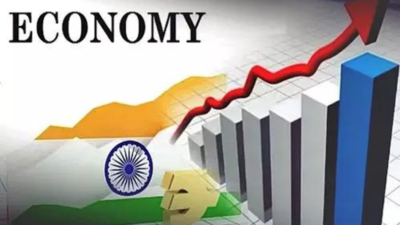
India will continue its robust economic growth trajectory and outpace major industrialised G7 countries, supported by strong domestic demand, sound macroeconomic fundamentals and a favourable demographic profile, the PHD Chamber of Commerce and Industry (PHDCCI) said in a report. The report, titled Population, Productivity, Partnership: Rethinking G7-India Collaboration, highlights that with an average real GDP growth of over 8% from 2021 to 2024, India has consistently outperformed all G7 countries—Canada, France, Germany, Italy, Japan, the United Kingdom, and the United States. Citing IMF projections, the industry body said India is expected to maintain a growth rate above 6% on average through 2029. “India’s consistent real GDP growth makes it the key growth driver for the world economy,” said Hemant Jain, President, PHDCCI, according to ANI. He credited India’s momentum to structural reforms such as GST, the Insolvency and Bankruptcy Code, the Production Linked Incentive (PLI) scheme, and expanding digital infrastructure like Aadhaar and UPI. In terms of purchasing power parity (PPP), India’s share in global GDP has risen from 7% in 2020 to 8.3% in 2024 and is expected to exceed 9% by 2029. A key driver, is India’s demographic edge—with over 68% of its population in the 15–64 age group—compared to ageing G7 populations where over 10% are above 65. By 2030, this share is expected to double in many G7 countries, leading to shrinking labour pools and increasing dependency burdens, ANI reported. India’s merchandise trade with G7 nations has grown 61%, from $154 billion in FY21 to $248 billion in FY25, while maintaining a steady trade surplus. “This reflects India’s rising export competitiveness,” the report said. It also noted India’s global leadership on initiatives such as the International Solar Alliance, Mission LiFE, and the Global Biofuels Alliance. In technology and digital governance, the report said India’s approach to AI, with initiatives like BHASHINI and Digital Public Infrastructure (DPI), showcases a human-centric and ethical model. PHDCCI said strategic cooperation with G7 on clean energy, climate finance, supply chain resilience, and healthcare will define future growth trajectories.














